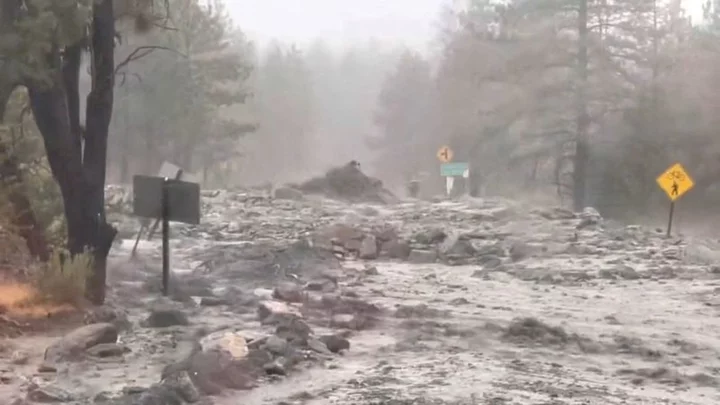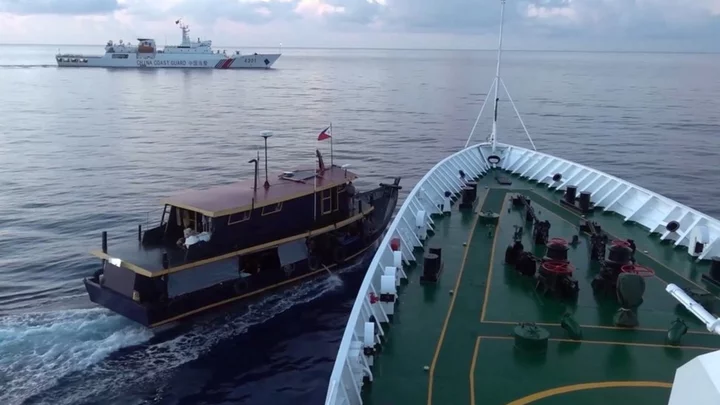LOS ANGELES (Reuters) -Parts of Southern California and the U.S. Southwest on Monday faced the threat of flash flooding along with landslides and mudslides after storm Hilary unleashed record-breaking downpours overnight.
Some 17 million Americans were under flood and high-wind advisories, watches and warnings as remnants of the storm moved north dumping heavy rains from the California-Mexico border up through Las Vegas and into parts of the Northwest, the National Weather Service said.
One of the hardest hit communities has been Palm Springs, California, where video footage posted on social media showed flooded streets and debris flows. Mayor Grace Garner told CNN the city's 911 system was knocked out from the storm.
"Right now we have flooding on all of our roads. There's no way in or out of Palm Springs and that's the case for the majority of the Coachella valley. We're all stuck," she said during an interview on the network.
A steady rain fell on Monday morning in many parts of the region, where record-breaking downpours had already fallen. Hilary was downgraded to a post-tropical cyclone overnight.
Some mountain and desert areas could see rain accumulation totals reaching 5 to 10 inches (12 to 25 cm) from the storm, as much as the deserts typically see in a year, forecasters said.
As the rain was expected to slowly dissipate throughout the morning in Southern California, officials warned residents not to let their guard down as dangerous flooding could wash out roadways and inundating neighborhoods.
"The ongoing and historic amount of rainfall is expected to cause life-threatening to locally catastrophic flash, urban and arroyo flooding including landslides, mudslides and debris flows today," the service said.
The service downgraded Hurricane Hilary to a tropical depression, but not before California Governor Gavin Newsom declared a state of emergency for much of Southern California. U.S. President Joe Biden also ordered federal agencies to move personnel and supplies into the region.
Before striking the U.S. Southwest, the storm passed northward through Mexico's Baja California peninsula. It killed at least one person in Mexico, triggering flash flooding and sweeping away roads.
It crossed the border on Sunday afternoon, hitting San Diego county with its first tropical storm ever recorded and becoming the first to pelt Los Angeles county since 1939.
As the region hunkered down for the storm on Sunday, a magnitude 5.1 earthquake hit Southern California north of Los Angeles.
In Ventura County, just northwest of Los Angeles, Fire Department Captain Brian McGrath on Monday told CNN that the bulk of the rain had passed through the county with no significant road closures, although authorities were surveying for any extra storm or earthquake damage such as fallen trees.
(Reporting by Reuters staff; Writing by Daniel Trotta; Editing by Clarence Fernandez and Alistair Bell)









